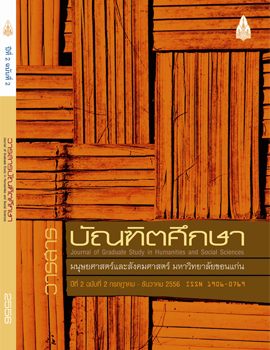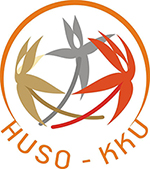โครงการศึกษาการพนันกับการแข่งเรือยาวประเพณี
คำสำคัญ:
การพนันขันต่อ, การแข่งเรือยาวประเพณี, gambling, a long boat raceบทคัดย่อ
โครงการวิจัยนี้เป็นการศึกษาจากการเก็บข้อมูลจากเอกสารจากเอกสารชั้นต้นและเอกสารชั้นรอง จากบันทึกคนท้องถิ่น บันทึกราชการ รวมถึงการศึกษาในเรื่องที่เกี่ยวข้องกับการแข่งเรือยาวประเพณี นอกจากนี้ได้ใช้วิธีการวิธีการสัมภาษณ์เชิงลึก(In-depth Interview) และการวิธีการสนทนากลุ่ม (Focus Group) และสังเกตการณ์ในกิจกรรมการแข่งขันเรือยาวประเพณีเป็นการค้นหาและดึงเอาความรู้จากผู้มีประสบการณ์ตรงเพื่อศึกษาผลกระทบด้านเศรษฐกิจ สังคมและการเมืองจากการเล่นพนันและข้อเสนอแนวทางการแก้ไขในเชิงนโยบายสัมภาษณ์เชิงลึกในพื้นกรณีศึกษาจังหวัดพิษณุโลกและพิจิตรเพื่อประมวลสถานการณ์และรูปแบบ “การเล่นเรือ” คือ การพนันขันต่อรูปแบบหนึ่งเพื่อทายผลการแข่งขันเรือคู่แข่งซึ่งมีเครือข่ายของคนเล่นแบ่งออกเป็นกลุ่มเพื่อน กลุ่มคนในวงการแข่งขันเรือยาว และกลุ่มเซียนพนันที่ติดตามการแข่งเรือในแต่ละสนาม โดยวิเคราะห์การเปลี่ยนแปลงในเชิงโครงสร้างและเครือข่ายการจัดการแข่งขันเรือยาวประเพณีที่สัมพันธ์กับทีมจัดงาน ทีมเรือ ฝีพายมืออาชีพ ธุรกิจที่เกี่ยวข้องกับการแข่งเรือยาว
สำหรับบทความนี้นำเสนอการเปลี่ยนแปลงการแข่งเรือยาวประเพณีที่แข่งขันในแม่น้ำน่าน กรณีศึกษาจังหวัดพิษณุโลกและพิจิตร เพื่อประมวลสถานการณ์การแข่งเรือยาวประเพณีในมิติต่างๆบริบทการแข่งขันเรือยาวประเพณีในอดีต-ปัจจุบันโดยวิเคราะห์การเปลี่ยนแปลงในเชิงโครงสร้างและเครือข่ายการจัดการแข่งขันเรือยาวประเพณีที่สัมพันธ์กับทีมจัดงาน ทีมเรือ ฝีพายมืออาชีพ ธุรกิจที่เกี่ยวข้องกับการแข่งเรือ ปัจจัยและเงื่อนไขของการเปลี่ยนแปลง รวมถึงเครือข่ายและความสัมพันธ์ของผู้เล่นพนันทายผลการแข่งขันเรือยาวประเพณี
A study of a Connection between Grambling and Long Boat Racing
A long boat race has been evolved from a transport mean of a riverine inhabitant to a sport.It’s origin can trace to a religious festival which a villager takes part in a long boat race as a recreational activity. Such an annual event has been developedgradually to create a cooperative mechanism in the community. Also an incentive for a competition has been initiated which lead to an emergence of a reward system. Over the time of the process, gambling is a core part which shapes a pattern of the game.
The study uses an in-depth interview technique in order to compile a situation and pattern of “boat race gambling” in the areas of Phitsanulok and Phichit Provinces. The culmination is to analyses the changes in a structure and a network of a long boat race management which relates to various stakeholders such as a boat racing organizer, a boat racing team, a professional boat rower and related businesses. Notably, a gambler is a crucial factor which plays a key role and has been transformed on such changes simultaneously. There are three groups of gamblers; an insider of a long boat race, a professional gambler and a supporter of a long boat team. A decrease of a boat travelling is a consequence of socioeconomic and political conditions. These cause a shift in a pattern of the race which “a traditional recreation” overlap with “a sport”
Currently, local authorities, particularly the head of a village and local administrative organizations, promote the event as a traditional preservation and tourism advertising through an annual festival of the community. As a sport, its practices, rules and regulations havebeen developed to be standardized. The number of racing arenas have been increasing. A successive competition contributes to an improvement and maintenance of a team to attainvictory. Moreover, the audience is an essential component of a gamewhothe organizer have to provide the number of seats in a nearby area of a finish line. In addition, a live broadcast of an event in major arenas is aone strategy of encouragement. Such changes indicate a patronage system among stakeholders in a long boat race which establish the intricate of gambling along with an increasing quantity of a race and a considerable amount of money bet.







